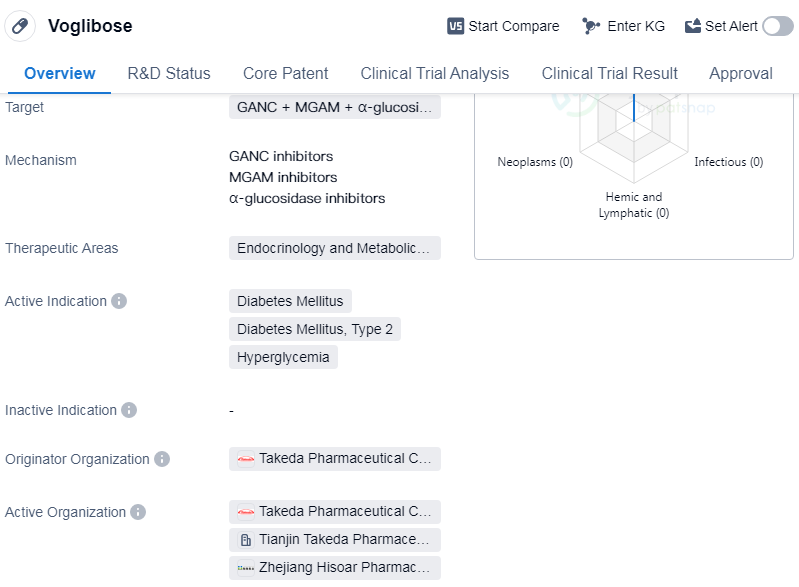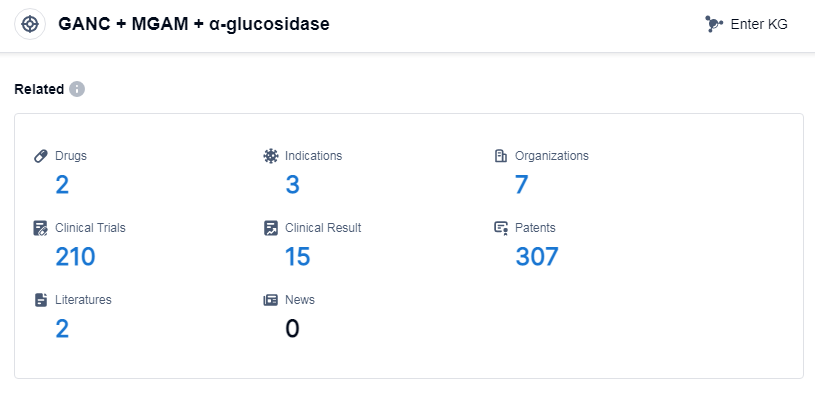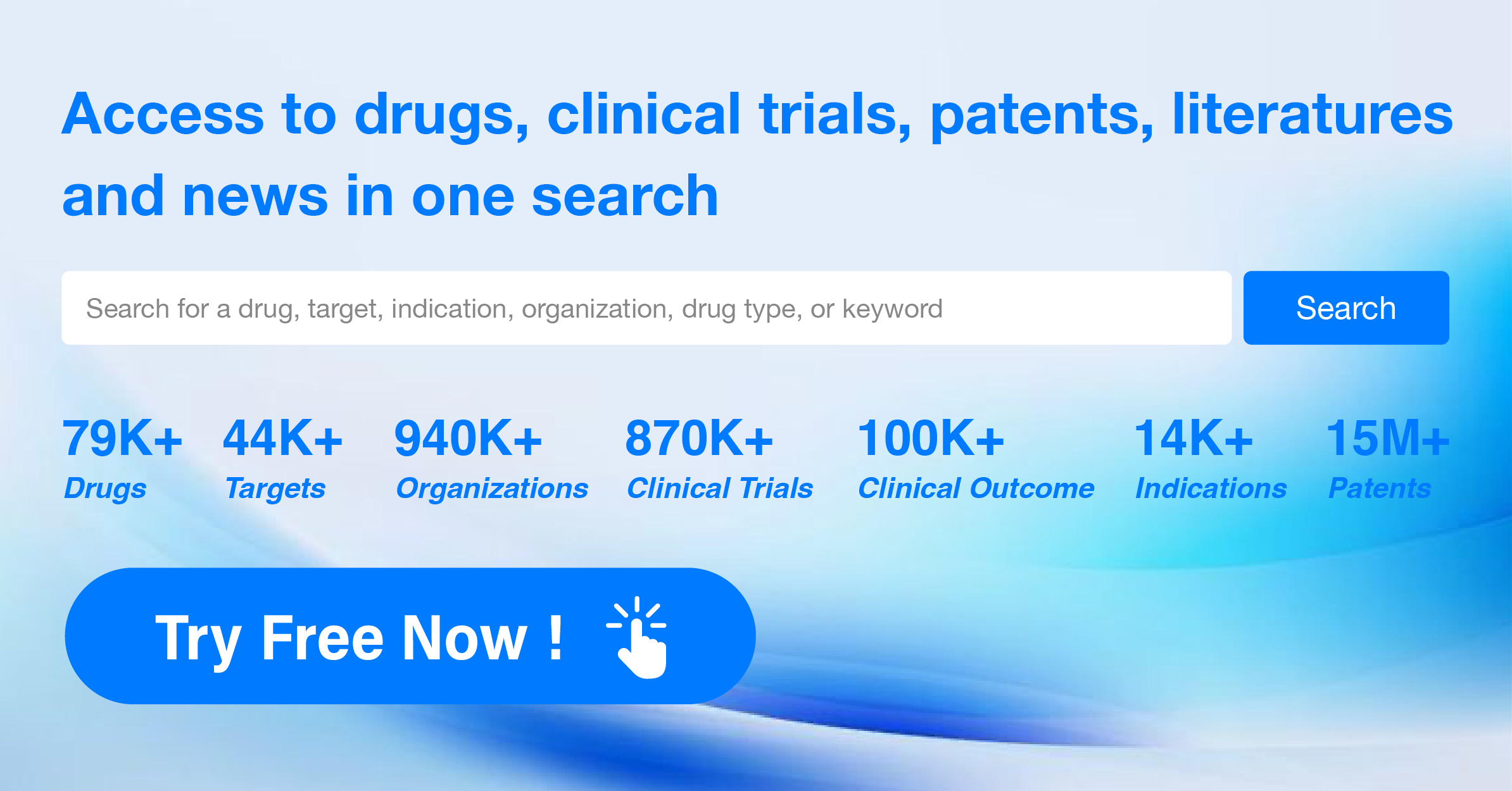Decoding Voglibose: A Comprehensive Study of its R&D Trends and Mechanism on Drug Target
Voglibose's R&D Progress
Voglibose is a small molecule drug that falls under the therapeutic areas of endocrinology and metabolic disease. It targets GANC, MGAM, and α-glucosidase, making it suitable for the treatment of diabetes mellitus, diabetes mellitus type 2, and hyperglycemia. The drug was first approved in Japan in July 1994 and is developed by Takeda Pharmaceutical Co., Ltd.
As a small molecule drug, Voglibose is designed to interact with specific enzymes and receptors in the body to produce a therapeutic effect. In this case, it targets GANC, MGAM, and α-glucosidase, which are involved in glucose metabolism. By inhibiting these enzymes, Voglibose helps to regulate blood sugar levels and manage the symptoms of diabetes mellitus and hyperglycemia.
Voglibose's approval in Japan in 1994 indicates that it has undergone rigorous testing and demonstrated safety and efficacy in clinical trials. It has also received approval in other countries, although specific information about these approvals is not provided. The fact that Voglibose has reached the highest phase of development suggests that it has undergone extensive research and development, including preclinical studies and multiple phases of clinical trials.
Takeda Pharmaceutical Co., Ltd. is the originator organization behind Voglibose. As a pharmaceutical company, Takeda is responsible for the discovery, development, and commercialization of the drug. The company has likely invested significant resources into the research and development of Voglibose, including conducting clinical trials and obtaining regulatory approvals.
👇Please click on the image below to directly access the latest data (R&D Status | Core Patent | Clinical Trial | Approval status in Global countries) of this drug.
Mechanism of Action for Voglibose: GANC inhibitors, MGAM inhibitors and α-glucosidase inhibitors
GANC inhibitors, MGAM inhibitors, and α-glucosidase inhibitors are all types of drugs that are used in the field of biomedicine.
GANC inhibitors are a type of drug that specifically target and inhibit the activity of GANC enzymes. GANC enzymes are involved in various biological processes, and inhibiting their activity can have therapeutic effects in certain diseases or conditions.
MGAM inhibitors, on the other hand, target and inhibit the activity of MGAM enzymes. MGAM enzymes play a role in the digestion and breakdown of complex carbohydrates, and inhibiting their activity can be beneficial in certain gastrointestinal disorders or conditions.
Lastly, α-glucosidase inhibitors are drugs that inhibit the activity of α-glucosidase enzymes. These enzymes are involved in the breakdown of complex carbohydrates into simple sugars. By inhibiting α-glucosidase activity, these inhibitors can help regulate blood sugar levels and are commonly used in the treatment of type 2 diabetes.
Overall, these inhibitors are types of drugs that target specific enzymes involved in various biological processes, and their inhibition can have therapeutic effects in certain diseases or conditions.
Drug Target R&D Trends for Voglibose
According to Patsnap Synapse, as of 14 Sep 2023, there are a total of 2 GANC, MGAM and α-glucosidase drugs worldwide, from 7 organizations, covering 3 indications, and conducting 210 clinical trials.
The analysis of the target GANC, MGAM and α-glucosidase reveals that Bayer AG, Takeda Pharmaceutical Co., Ltd., and Zhejiang Hisoar Pharmaceutical Co., Ltd. are the companies growing fastest in this area. The highest stage of development for this target includes approved, inactive, and phase 1 drugs. Indications related to diabetes mellitus, particularly type 2 diabetes mellitus, have seen drug approvals and inactive phases. Small molecule drugs are progressing rapidly, indicating significant research and development efforts. China, the United States, and other countries like Japan, Thailand, and the Philippines are developing rapidly in this target area. However, the European Union and countries such as Germany, Spain, and Brazil have shown slower progress. Overall, the current competitive landscape suggests a focus on small molecule drugs for the treatment of diabetes mellitus, with China emerging as a key player in the development of drugs targeting GANC, MGAM and α-glucosidase.
👇Please click on the picture link below for free registration or log in directly if you have a freemium account, you can browse the latest research progress on drugs, indications, organizations, clinical trials, clinical results, and drug patents related to this target
Conclusion
Overall, Voglibose is a small molecule drug developed by Takeda Pharmaceutical Co., Ltd. It targets GANC, MGAM, and α-glucosidase and is approved for the treatment of diabetes mellitus, diabetes mellitus type 2, and hyperglycemia. Its approval in Japan in 1994 indicates its long-standing presence in the market, and its highest phase of development suggests extensive research and development efforts.






